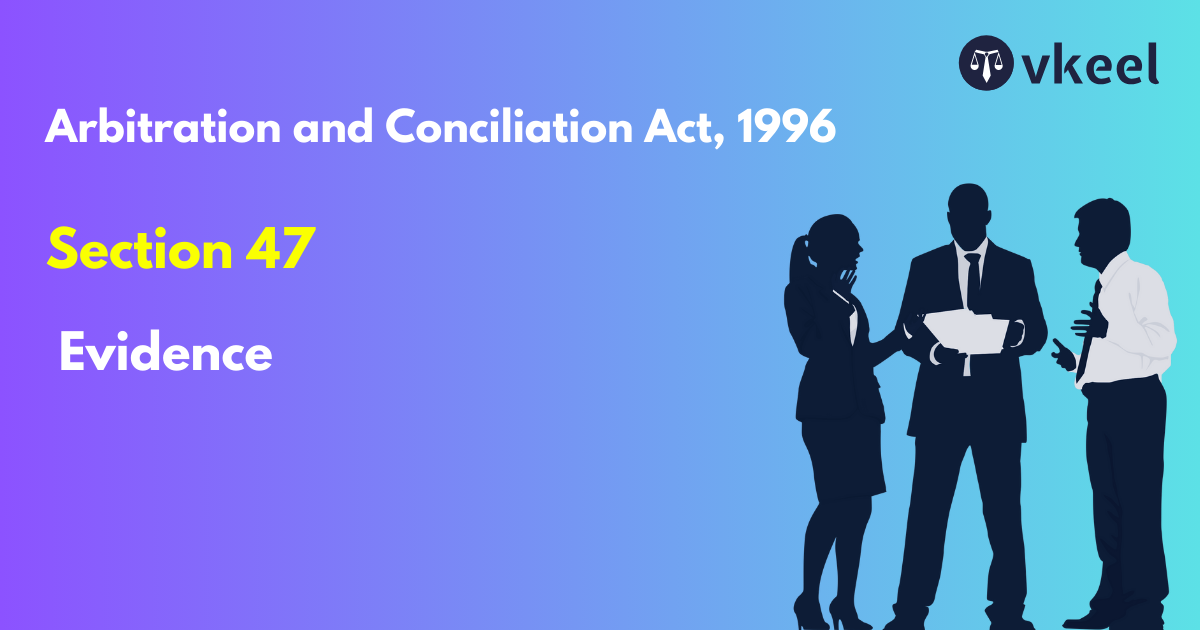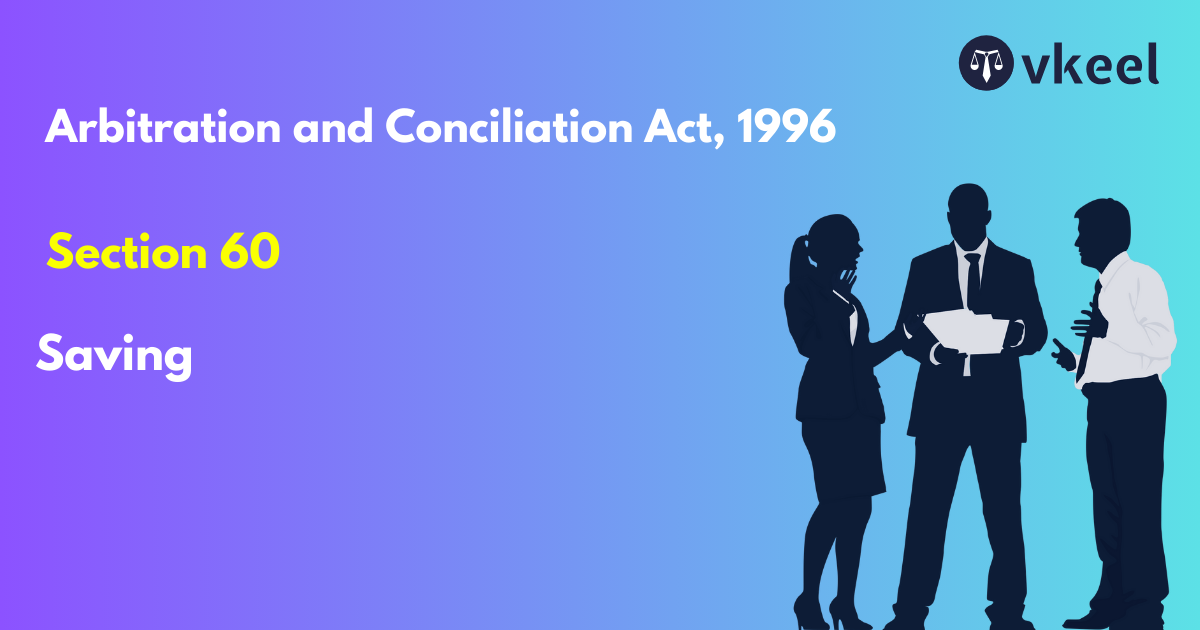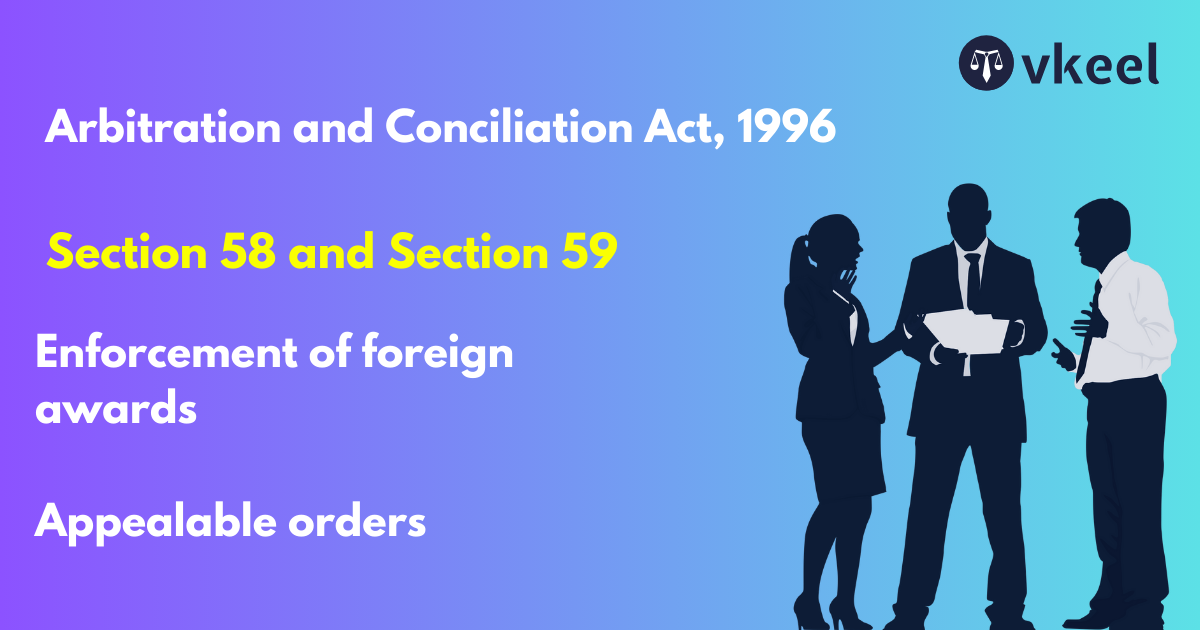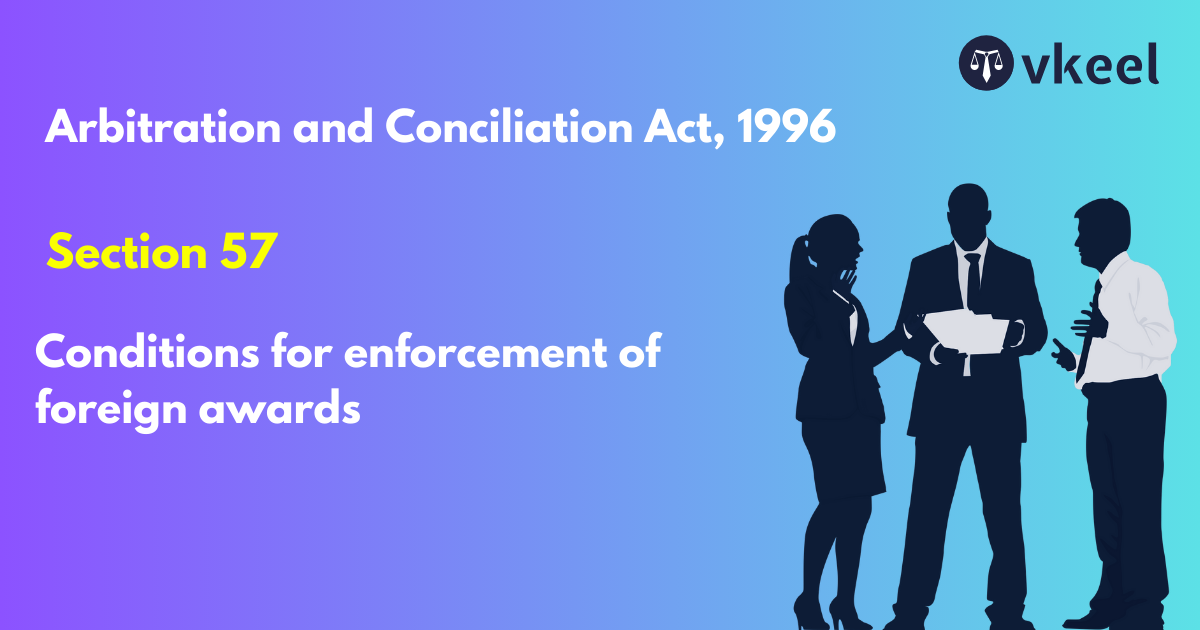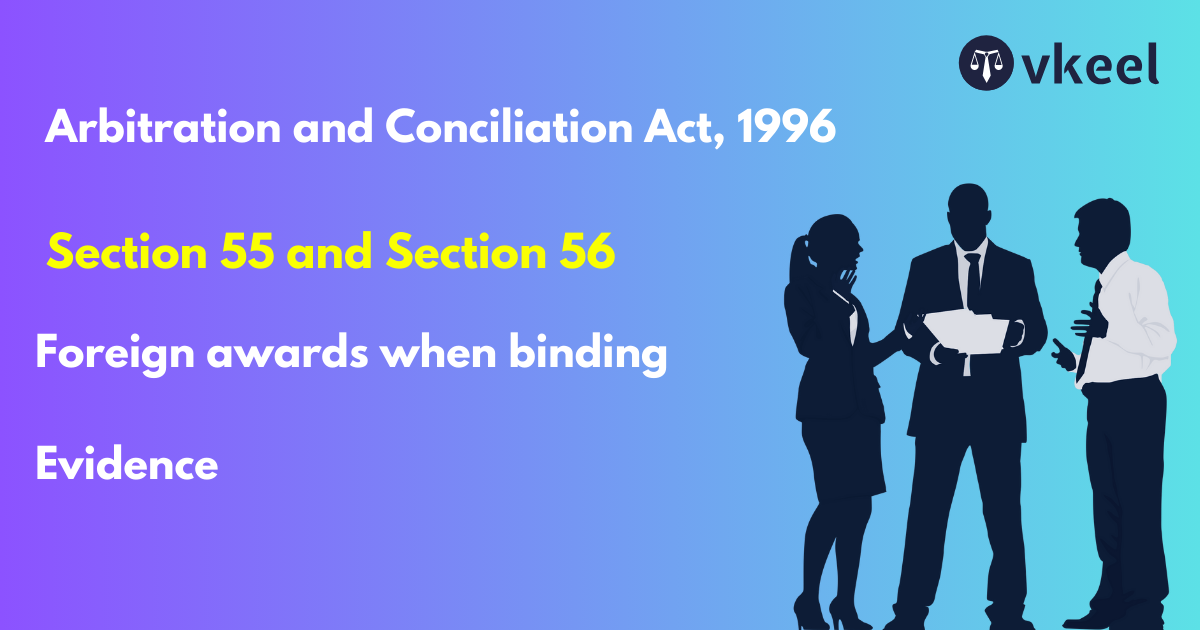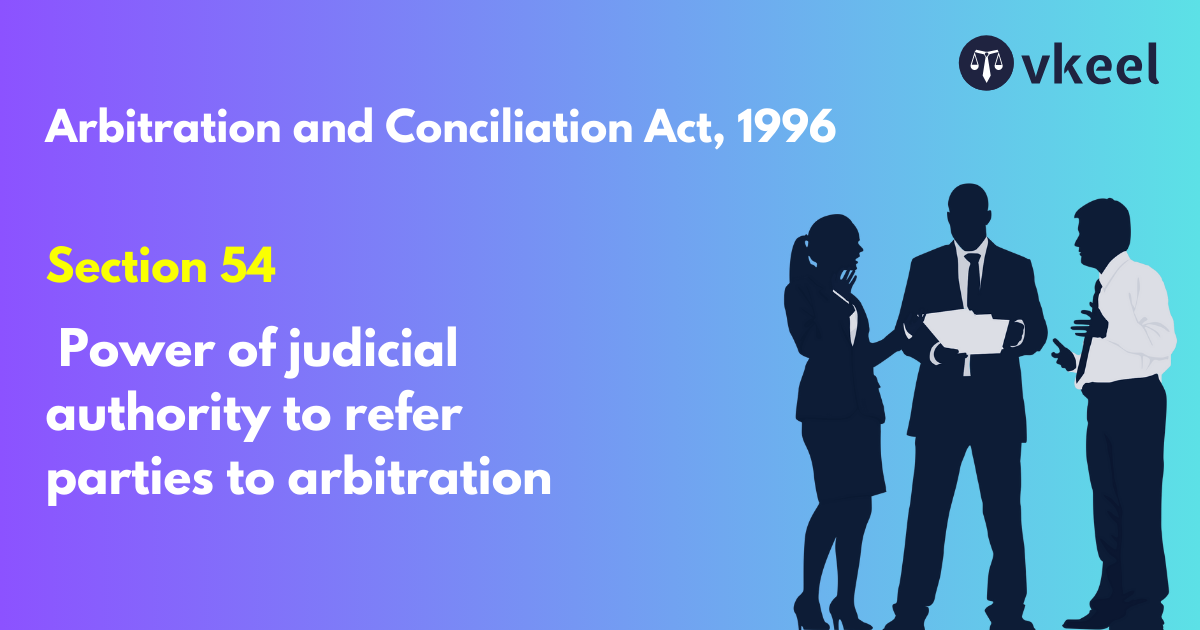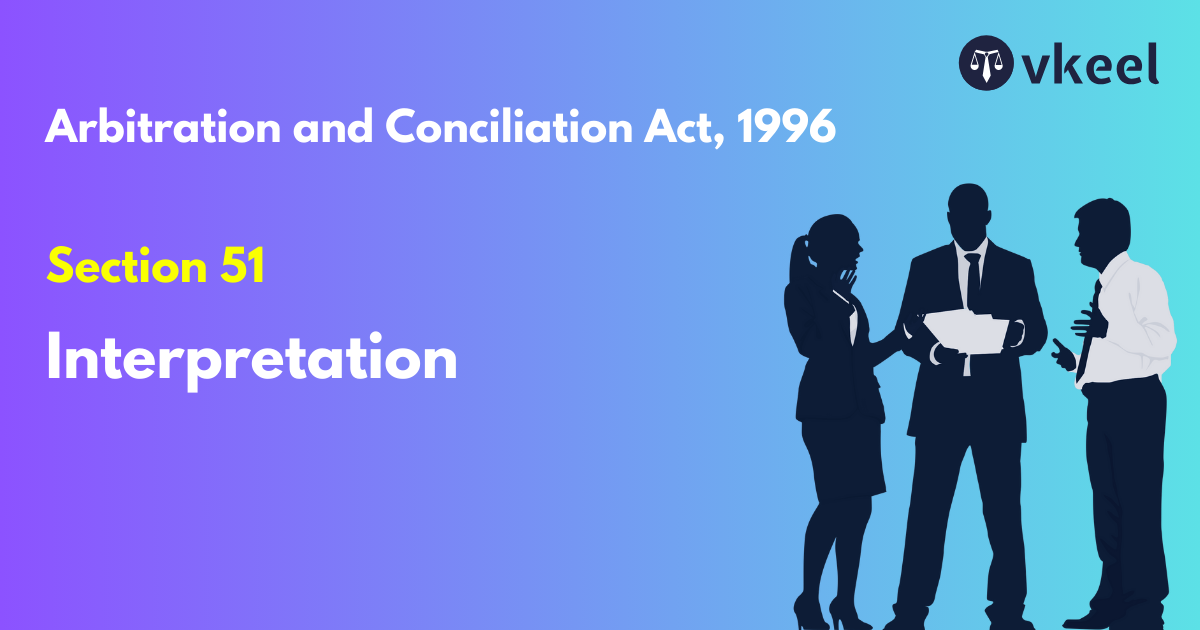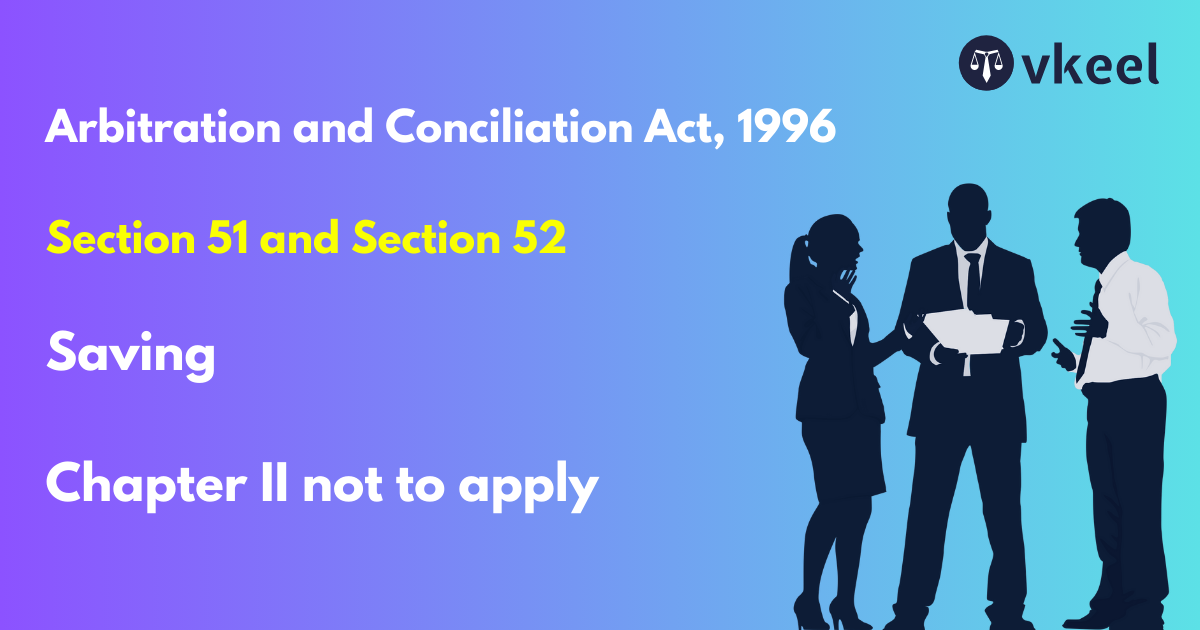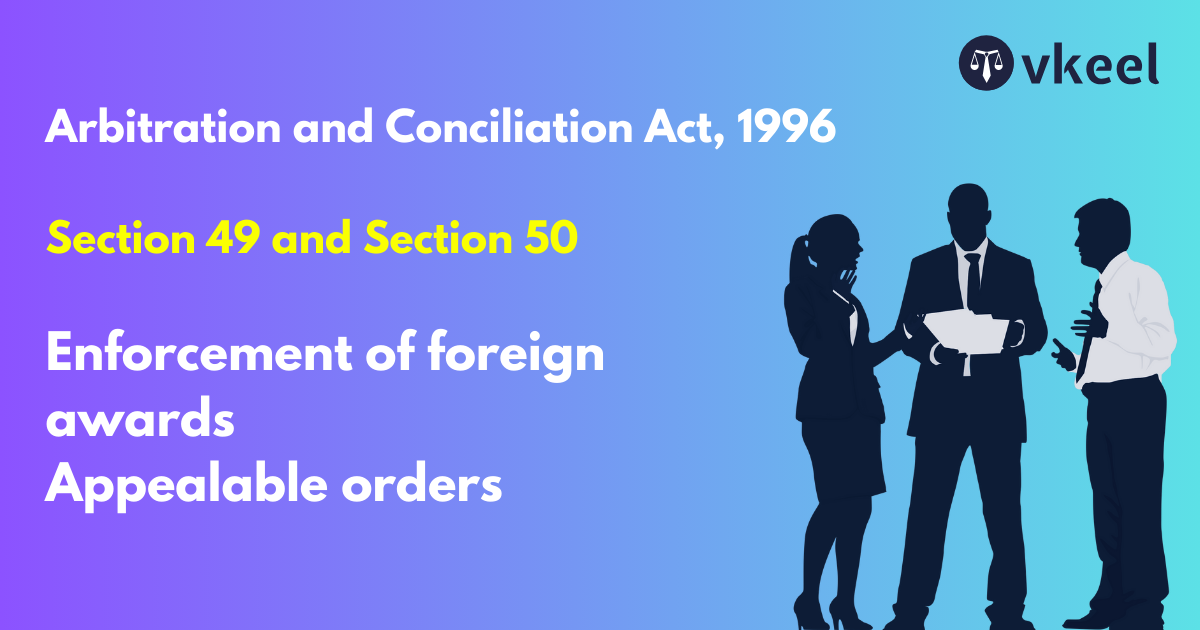Section 47: Arbitration and Conciliation Act, 1996
By Nivedita Dhiman
Table of Contents
Introduction of Section 47
Section 47 of the arbitration and conciliation provides for production of original award or copy thereof dully authenticated and the original agreement as well as such evidence as may be necessary to the satisfaction to hold that the award is a foreign award. This procedure ensures legality, validity and existence so that the same can be executed as a decree of that court.
Once a decree is produced for execution there is a presumption that the same is vaildly in existence and is passed by a court of competent jurisdiction after following due procedure since the executing court competent to go behind and examine the relations between parties and merits of list in existence.
Section 47 of arbitration and conciliation act
Evidence
(1) The party applying for the enforcement of a foreign award shall, at the time of the application, produce before the court—
(a) the original award or a copy thereof, duly authenticated in the manner required by the law of the country in which it was made;
(b) the original agreement for arbitration or a duly certified copy thereof; and
(c) such evidence as may be necessary to prove that the award is a foreign award.
(2) If the award or agreement to be produced under sub-section (1) is in a foreign language, the party seeking to enforce the award shall produce a translation into English certified as correct by a diplomatic or consular agent of the country to which that party belongs or certified as correct in such other manner as may be sufficient according to the law in force in India.
1[Explanation.—In this section and in the sections following in this Chapter, “Court” means the High Court having original jurisdiction to decide the questions forming the subject-matter of the arbitral award if the same had been the subject-matter of a suit on its original civil jurisdiction and in other cases, in the High Court having jurisdiction to hear appeals from decrees of courts subordinate to such High Court.]
Landmark Judgements of Section 47
Louis Dreyfus Commodities Asia Pvt Ltd vs Govind Rubber Ltd, 2013
Merely because respondent did not sign sale contracts or did not return copy thereof duly signed to the petitioner would not mean that terms and conditions recorded therein in such sale contracts would not be binding particular when the respondent had acted upon these terms and conditions of sales contracts which included provisions of Singapore commodity exchange which contained arbitration clause.
Campos Brothers Farms vs Matru Bhumi Supply Chain Pvt Ltd, 2019
Where the arbitrator had not given any reason for his conclusion or for fastening joint and several liability on the respondents, merely because common reply had been sent or joint reference made by the respondents, same would not be sufficient to lift the corporate veil. The plea that the award can be easily deciphered to determine as to which portion of the award is against which respondents, it was held that the court does not have power to modify award in the process of its enforcement.
Ludwig Wunshe Co vs Raunaq International Ltd, 1983
Even though there is no provision for a requisition to the arbitrators to file the award or proceedings of arbitration or any other documents in the court, there there is nothing to prevent the respondents from obtaining from the court, there is nothing to prevent the respondents from obtaining from the court appropriate directions for the production of any record which is relevant to the question in controversy between the parties at any stage of the proceedings.
Toepfer International Asia Pvt Ltd vs Thapar Ispat Ltd, 1999
If the contract is said to have been concluded when the terms were prepared, then obviously that took place in Bombay. If the contract is said to have been finalised only after both parties had signed, then it is clear that one of the parties signed at Ludhiana and the other signed it in Bombay only after it was received in Bombay. Looking at it either way it can safely be said that the contract was entered into a Bombay and thus courts in Bombay have territorial jurisdiction to entertain the petition.
Pacific Basin Ltd vs Ashapuru Minechem Ltd, 2011
A party cannot seek postponement of the proceedings indefinitely and delay matters in such a manner so as to defeat petitioner’s right to seek enforcement of foreign award. No petition can be entertained for adjournment without any conditions. Going by the phraseology of section 48(3), it is clear that it gives opportunity to both parties, one claiming enforcement and other seeking postponement of decision, on enforcement.
Conclusion of Section 47
The above-mentioned section of the arbitration and conciliation act plays a crucial role in ensuring the enforceability of foreign arbitral awards in India. It also aims to provide effect to international arbitration agreements and awards in India that encourages cross-border dispute resolution.
Disclaimer:
The information provided in the article is for general informational purposes only, and is not intended to constitute legal advice or to be relied upon as a substitute for legal advice. Furthermore, any information contained in the article is not guaranteed to be current, complete or accurate. If you require legal advice or representation, you should contact an attorney or law firm directly. We are not responsible for any damages resulting from any reliance on the content of this website.

